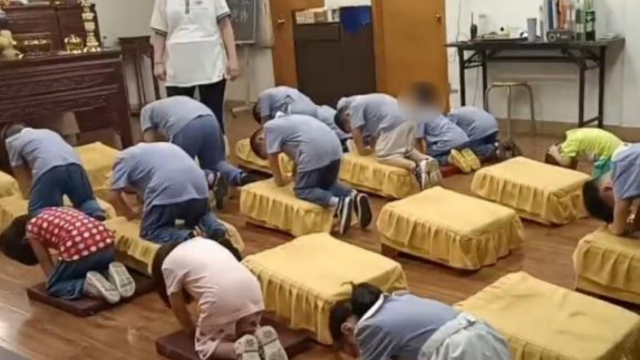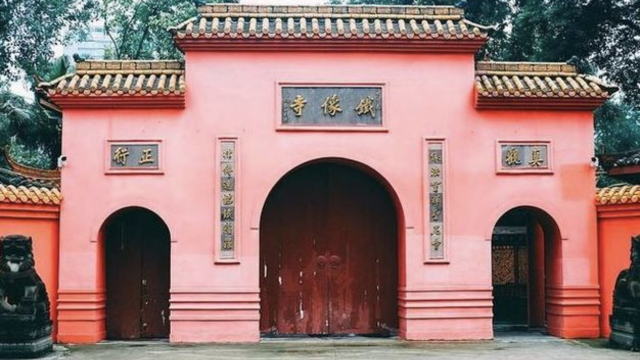In Guangdong and Shandong, authorities vow to show “no tolerance” to the redemptive religious movement.

Yiguandao, one of China’s most influential redemptive religious movements, has long been a target of state repression. The crackdown under Mao Zedong in the 1950s was unprecedented in scale: over 820,000 leaders and organizers were arrested, and millions of followers detained or executed. Though the movement was nearly eradicated in mainland China, it survived and flourished abroad—especially in Taiwan, where it became a prominent spiritual and cultural force.
During the Hu Jintao era (2002–2012), Yiguandao experienced a brief window of relative tolerance. Some scholars and officials speculated that the Chinese Communist Party (CCP) might even promote Yiguandao as a more culturally resonant alternative to Christianity and to other new religions. Its Confucian-infused teachings, vegetarian ethics, and emphasis on filial piety seemed to align with the Party’s vision of “harmonious society.”
That window has now slammed shut.
Recent reports from the China Anti-Xie-Jiao Association—a CCP-controlled body operating under the United Front—reveal a renewed and aggressive campaign against Yiguandao.
On September 10, the Association reported on a pending case in Guangdong, where authorities dismantled a Yiguandao-affiliated kindergarten allegedly used as a covert “dao chang” (ritual space). Teachers were accused of indoctrinating children with Yiguandao beliefs, including worship of the Ancient Mother (Wusheng Laomu), and performing repetitive prostrations typical of the religion.
In Shandong, a large-scale operation led to the arrest of over 600 individuals linked to Yiguandao, including more than 30 minors. The group was accused of spreading a “xie jiao” ideology and manipulating vulnerable individuals through apocalyptic narratives like the “Three Periods Final Calamity.”
The rhetoric used by the China Anti-Xie-Jiao Association is telling. Yiguandao is portrayed as a dangerous, deceptive force that preys on psychological distress, undermines social stability, and even threatens national security. The association explicitly condemns its teachings as “spiritual control,” “financial exploitation,” and “sexual misconduct”—a familiar triad in CCP propaganda against banned religious groups.
The shift from cautious tolerance to full-blown repression reflects broader changes under Xi Jinping’s leadership. Since 2012, the CCP has intensified its campaign to “Sinicize” religion, suppress foreign religious influence, and eliminate unauthorized spiritual movements. Yiguandao, with its transnational networks and esoteric rituals, now finds itself lumped together with other banned groups—despite its historical roots in Chinese salvationist traditions.
This reversal is particularly striking given Yiguandao’s previous detachment from overt political activism and its efforts to align with cultural values promoted by the state. As noted in “Bitter Winter,” the arrests of Taiwanese missionaries in recent years underscore the risks faced by cross-strait religious exchanges.
The term “xie jiao” remains central to the CCP’s strategy. Historically used to denote heterodox teachings, it now functions as a political tool to delegitimize any religious group outside state control. The China Anti-Xie-Jiao Association’s reports are not neutral journalism—they are part of a broader ideological offensive. Their narratives blend fearmongering, moral panic, and selective facts to justify repression.
Yiguandao’s inclusion in this campaign signals the CCP no longer sees it as a manageable or potentially useful tradition. Instead, it is treated as a threat—one to be eradicated, not co-opted.
The renewed crackdown on Yiguandao is not an isolated event. It fits a broader pattern of religious repression in Xi’s China, where spiritual autonomy is increasingly criminalized. What makes this moment notable is the reversal of earlier hopes that Yiguandao might be spared—or even embraced—as a “safe” alternative.
Instead, the movement is again cast into the shadows, its temples shuttered, its followers detained, and its teachings vilified. The CCP’s message is clear: no independent belief system is safe in the battle for ideological control.
Source: Bitter Winter












